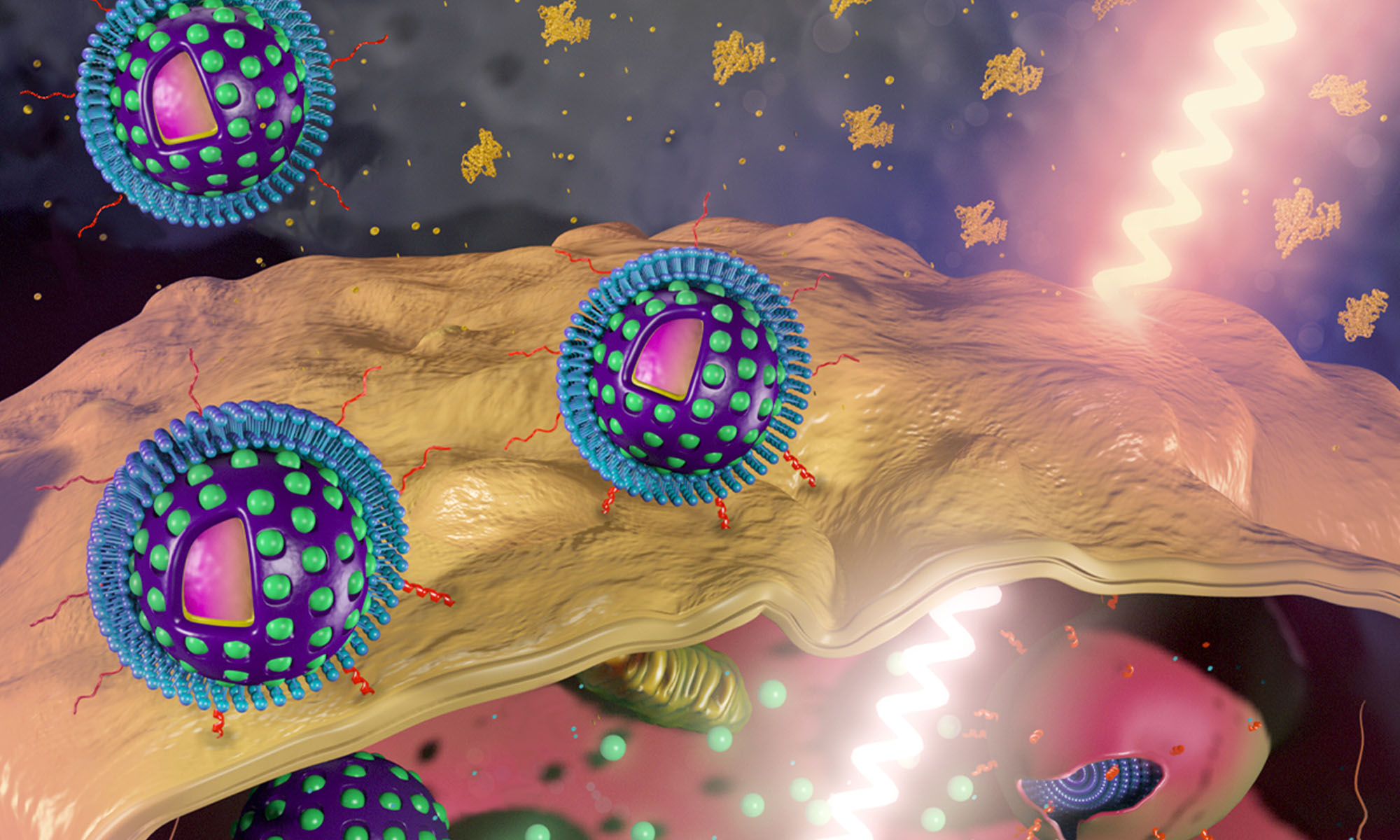News
NYU Abu Dhabi Develops Cancer-Fighting Nanospheres
The biotech breakthrough promises safer and more effective treatments using photodynamic and photothermal therapies.

A Research team from NYU Abu Dhabi’s Magzoub lab has made considerable advances in the fight against cancer using biocompatible nanospheres that have the potential to replace traditional forms of treatment.
The experiments trialed photodynamic therapy (PDT) and photothermal therapy (PTT), which use non-invasive light waves to destroy cancers, avoiding the well-known side effects of chemo and radiotherapy.
Photodynamic therapy works by releasing a torrent of reactive oxygen species (ROS) onto cancer cells, whereas photothermal therapy converts light into searing heat, destroying tumor tissues through hyperthermia.
The research team has detailed their findings in a paper entitled “pH-Responsive Upconversion Mesoporous Silica Nanospheres for Combined Multimodal Diagnostic Imaging and Targeted Photodynamic and Photothermal Cancer Therapy”. The literature goes on to explain how the nanospheres are able to protect encapsulated photosensitizers and photothermal agents from degrading, enabling them to be delivered directly to cancer cells.
Alongside thermal and fluorescent imaging, traditional magnetic resonance imaging (MRI) is also used for tumor detection and monitoring. Once cancer is detected, the PDT and PTT can kill tumors without leaving toxic traces in the body.
Also Read: Dubai Airport To Introduce Complete Biometric Admin System
Loganathan Palanikumar, a senior researcher in the NYUAD Magzoub lab, explained the process, “To make PDT effective, we need enough photosensitizer in the tumor tissue, while PTT requires a substantial accumulation of photothermal agents within tumors”.
Mazin Magzoub, NYUAD associate professor of biology and Magzoub lab leader, added, “New therapeutic approaches are desperately needed to enhance the existing arsenal of cancer-fighting treatments”.
Magzoub lab’s new treatments offer real hope that cancers could soon be treated with minimal stress and danger to patients, leading to a brighter future free from one of the world’s most feared and destructive diseases.
News
Rabbit Expands Hyperlocal Delivery Service In Saudi Arabia
The e-commerce startup is aiming to tap into the Kingdom’s underdeveloped e-grocery sector with a tech-first, locally rooted strategy.

Rabbit, an Egyptian-born hyperlocal e-commerce startup, is expanding into the Saudi Arabian market, setting its sights on delivering 20 million items across major cities by 2026.
The company, founded in 2021, is already operational in the Kingdom, with its regional headquarters now open in Riyadh and an established network of strategically located fulfillment centers — commonly known as “dark stores” — across the capital.
The timing is strategic: Saudi Arabia’s online grocery transactions currently sit at 1.3%, notably behind the UAE (5.3%) and the United States (4.8%). With the Kingdom’s food and grocery market estimated at $60 billion, even a modest increase in online adoption could create a multi-billion-dollar opportunity.
Rabbit also sees a clear alignment between its business goals and Saudi Arabia’s Vision 2030, which aims to boost retail sector innovation, support small and medium-sized enterprises, attract foreign investment, and develop a robust digital economy.
The company’s e-commerce model is based on speed and efficiency. Delivery of anything from groceries and snacks to cosmetics and household staples is promised in 20 minutes or less, facilitated by a tightly optimized logistics system — a crucial component in a sector where profit margins and delivery expectations are razor-thin.
Despite the challenges, Rabbit has already found its stride in Egypt. In just over three years, the app has been used by 1.4 million customers to deliver more than 40 million items. Revenue has surged, growing more than eightfold in the past two years alone.
Also Read: Top E-Commerce Websites In The Middle East In 2025
CEO and Co-Founder Ahmad Yousry commented: “We are delighted to announce Rabbit’s expansion into the Kingdom. We pride ourselves on being a hyperlocal company, bringing our bleeding-edge tech and experience to transform the grocery shopping experience for Saudi households, and delivering the best products – especially local favorites, in just 20 minutes”.
The company’s growth strategy avoids the pitfalls of over-reliance on aggressive discounting. Instead, Rabbit leans on operational efficiency, customer retention, and smart scaling. The approach is paying off, having already attracted major investment from the likes of Lorax Capital Partners, Global Ventures, Raed Ventures, and Beltone Venture Capital, alongside earlier investors such as Global Founders Capital, Goodwater Capital, and Hub71.
























